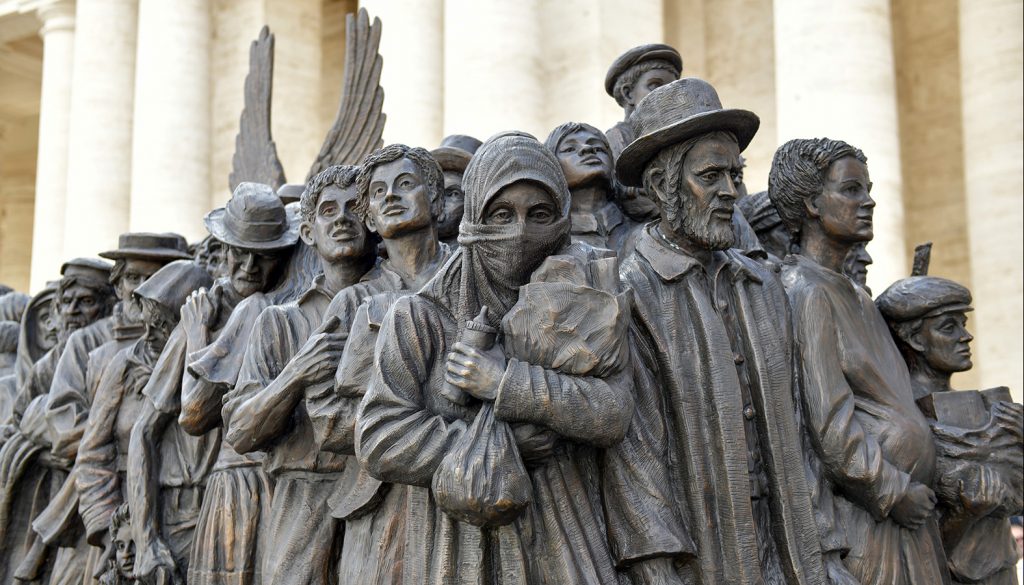The religious congregation to which I belong, the Missionary Oblates of Mary Immaculate, has had a long relationship with the indigenous peoples of North America. Admittedly it hasn’t always been without its shortcomings on our side, but it has been a sustained one, constant through more than 150 years. I write this out of the archives of that history.
In the mid-1800s, a group of young Oblates left France to work with the native peoples of Oregon and Washington. Given the means of travel at the time, particularly the challenge of crossing the entire United States, much of it on horseback, it took them almost a year to get from Marseilles to the Oregon coast. Among that group was a young missionary, Father Charles Pandosy.
In the summer of 1854, Washington Gov. Isaac Stevens had called for a meeting of Native American chiefs to be held at Walla Walla to discuss the tension between the U.S. government and the Natives. One of the tribes was stubbornly rebelling, the Yakima, a tribe led by its chief, Kamiakin, with whom the Oblates and Pandosy had been working. At one point, Kamiakin turned to Pandosy for advice.
In a letter written to our founder in France, St. Eugene de Mazenod, dated June 5, 1854, Pandosy summed up his conversation with the Yakima chief.
Not knowing what Europe looked like and not knowing how many people lived there or what forces were driving people to come to North America, the chief had asked Pandosy how many white men there were and when they would stop coming, naively believing that there couldn’t be that many of them left to come.
In his letter, Pandosy shares, verbatim, part of his conversation with Kamiakin: “It is as I feared. The whites will take your country as they have taken other countries from the Indians. I came from the land of the white man far to the east where the people are thicker than the grass on the hills.
“Where there are only a few here now, others will come with each year until your country will be overrun with them … you and your lands will be taken and your people driven from their homes. It has been so with other tribes; it will be so with you.
“You may fight and delay for a time this invasion, but you cannot avert it. I have lived many summers with you and baptized a great number of your people into the faith. I have learned to love you. I cannot advise you or help you. I wish I could.”
Sound familiar? One doesn’t have to strain any logic to see a parallel to the situation today as millions of refugees are crowding the borders the United States, Canada, and much of Europe, seeking to enter these countries.
Like Kamiakin, we who are living in those countries and passionately consider them our “own” and are very much in the dark as to how many people are looking to come here, what pressures are driving them here, and when the seeming endless flow of people will stop.
As well, like those indigenous tribes who back then had their lives irrevocably altered by us entering their country, we, too, tend to feel this is an unlawful and unfair invasion and are resistant to allowing these people to share our land and our cities with us.
When people initially came to North and South America from Europe, they came for various reasons. Some were fleeing religious persecution, some were seeking a way out of poverty and starvation, some were coming to work to send money back to support their families, some were doctors or clergy coming to minister to others, and yes, some, too, were criminals bent on crime.
It would seem not much has changed, except the shoe is now on the other foot. We, original invaders, are now the indigenous tribes, solicitous and protective of what we consider as rightfully ours, fearful of the outsiders, mostly naïve as to why they’re coming.
This isn’t just the case in North America, as most of Europe is experiencing the exact same pressures, except in their case they’ve had a longer time to forget how their ancestors once came from elsewhere and mostly displaced the indigenous peoples who were already there.
Admittedly, this isn’t easy to resolve, politically or morally. No country can simply open its borders indiscriminately to everyone who wants to enter; and yet our Scriptures, Jewish and Christian, are unequivocal in affirming that Earth belongs to everyone and that all people have the same right to God’s good creation.
That moral imperative can seem unfair and impractical, but how do we justify the fact that we displaced others to build our lives here but now find it unfair that others are doing the same thing to us?
Looking at the refugee crisis in the world today, one sees that what goes around does eventually come around.

